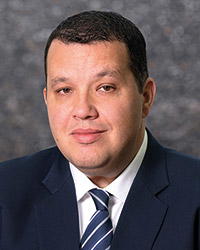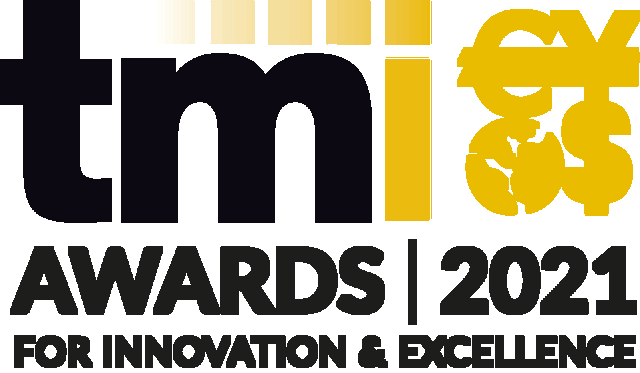

- Adam Boukadida
- Chief Financial Officer, Etihad Aviation Group
Etihad Airways deploys AI to rapidly identify supplier payment errors, with more processes in the pipeline
Deploying cutting-edge AI around its newly centralised and standardised data set is helping Etihad Airways’ finance team identify supplier payment anomalies, strengthening controls and saving time. The solution, a product of the department’s internal Innovation Committee, is a perfect demonstration of how to use advanced tools in the real world. TMI has no hesitation in bestowing upon Etihad the 2021 Corporate Recognition Technology Award for Best AI Solution.

Corporate Recognition Technology Awards
Best AI Solution
Etihad Airways
That Etihad Airways’ finance team even has an Innovation Committee is testament to its dedication to progress through technology. The fact that it applies it to practical issues shows it is looking for solutions to a problem, not finding problems for a solution.
Indeed, one pain point noted by the Innovation Committee was around transaction anomaly detection. “Given the transactional volume and spend, we saw this as an area where automation and AI could really add value,” explains Adam Boukadida, Etihad’s Chief Financial Officer.
Visibility first
The first step in tacking this issue was to build a data profile of any overpayments from the past that had been identified. To accomplish this, the Etihad team had to centralise and standardise a disparate data set that detailed these payments and their current status.
Spanning audit, business, legal, and finance teams, centralising and standardising helped the team understand past errors so that it could close any and all operational gaps. The process also revealed significant amounts of transactional training data, which later was found to be a critical step in building AI supported controls.
The aim was to make real-time decisions and minimise coverage gaps across Etihad’s multiple banking partners. “But we quickly discovered that whilst there are many off-the-shelf tools available in the market, these either generated too many false positives, stopping healthy transaction flows, or were linked to specific banking platforms,” recalls Boukadida.
To build out the next stage, trusted technology partner Microsoft was called upon, bringing its own partner, Predica on board to help create an in-house solution. The team started by mapping existing business challenges and manual business processes. From here, Predica was able to develop the AI algorithm for Etihad, and champion the two-month proof-of-concept process.
Developing intelligence
“The project got off to a good start thanks to the work that Etihad had already done in collating the data,” Boukadida notes. “With this type of AI, you need a set of data examples that can be used to train the algorithm. Using those examples, the AI can learn trends or markers in the data and then identify similar transactions from a much larger data set. It does this very quickly, far faster and more accurately than a human could.”
The project was deliberately restricted to a couple of years of data so it could be quick and agile. The training data set was given to the AI, which then looked through Etihad’s ERP, flagging any from a million-plus transactions that resembled ‘bad outcomes’ in the training data set.
AI training is an iterative process, the algorithm proposing a set of results for human validation, each step automatically refining all identification criteria until the required accuracy is achieved and human input is minimised or removed entirely.
Building on results
“The project results went above and beyond what we had expected,” states Boukadida. Indeed, within two months, the AI was able to identify outlier transactions that may have slipped through the net when using simple rules-based detection methods. A significant reduction in false positives, and a corresponding workload review, has saved more than 600 hours per year.
Etihad is moving into production and plans to run the analysis before its daily payments run, shifting the emphasis from detection to prevention. Finance is also exploring how AI can assist with cash flow forecasting. For the latter, Etihad approached the proof-of-concept process in a novel way, says Boukadida.
“We organised a mini-hackathon whereby historical cash flow data was shared with a group of participants, ranging from established market leaders to fintech start-ups. We asked each to produce a forecast using AI, which was compared against actuals. This not only enabled us to quickly see whether AI could improve forecast accuracy but also compare the capability of the different data science teams. The results so far have been extremely promising.”
With Etihad also now exploring how AI can be applied in the bank reconciliation space, it is underlining just how useful this technology could be in treasury and finance, even in tackling generic business problems. Its pioneering work is helping many more organisations uncover these possibilities, and TMI is thrilled to award Etihad the 2021 Corporate Recognition Technology Award for Best AI Solution.
A testament to the team
Addressing Etihad’s plans to build on this Award win, Boukadida says: “2021 was another challenging year but, despite being far from pre-pandemic market conditions, we have seen clear signs of recovery in the air travel industry. The civil aviation sector is now looking for ways to rebuild as international air travel rebounds from the pandemic, despite the Omicron variant slowing down recovery from mid-December. It’s imperative that we see a shift in this narrative and a return to capital investment drives, so that our sector can come back stronger.
“At Etihad, we continue to target a complete turnaround by 2023, having accelerated our transformation plans, restructured into a leaner and more agile business, and reshaped our business model, focusing on a core fleet of Boeing 787 Dreamliner widebody aircraft.
“In doing so, we are making our balance sheet more sustainable and flexible, for example, by optimising the mix of fixed/variable interest rates, or finance/operating leases to finance our fleet. We also use different instruments to balance our short- and long-term objectives, always with an eye to sustainability.” This work has included taking out the first loan in aviation tied to the [17] UN SDGs [Sustainable Development Goals] in 2019, the first-ever transition sukuk (Islamic bond) in the airline industry in 2020, and more recently, the first SLL [sustainability-linked loan] ESG loan in 2021 (TMI will be writing about this latest loan in a separate article).
Boukadida adds: “Etihad has established a comprehensive sustainability strategy, with the target of achieving net-zero emissions by 2050. We are prioritising a green recovery because we strongly believe that sustainability will be a strategic lever in the post-pandemic landscape, and we care deeply about reducing the impact of climate change.
“To that end, we have implemented a number of key sustainability initiatives such as our Greenliner Programme with Boeing and our Sustainability50 programme with Airbus, through which we are testing new ways of decarbonising and making flights more efficient. At the same time, we have formed innovative partnerships to explore new fuel sources, such as our deal with Masdar and Siemens Energy to explore the potential of green hydrogen for synthetic kerosene.”
Boukadida concludes: “From a financial perspective, our approach supports the broader sustainability strategy of the airline, and of the Emirate of Abu Dhabi.” With this sustainable strategy clearly mapped out and underway, the TMI judges are excited to see how Etihad performs in the 2022 Treasury4Good Awards – watch this space!
About the TMI Awards
For over 30 years, Treasury Management International (TMI) has been dedicated to promoting best practices and innovations in treasury management. The TMI Awards for Innovation & Excellence play a key role in this, formally recognising the corporate practitioners, banks, vendors and consultants who are defining new frontiers globally.



